
A. Kayum Ahmed
Dr. A. Kayum Ahmed, PhD, is an Assistant Professor at Columbia University's school of public health where he teaches health and human rights advocacy. In addition to his faculty appointment, he leads the Health and Human Rights Certificate and is affiliated with the Global Health Justice and Governance (GHJG) program.
Kayum also serves as Special Advisor on the right to health at Human Rights Watch, supporting the development of a global health strategy for the organization. Previously, he worked on ensuring equitable global access to Covid-19 vaccines as Division Director at the Open Society Foundations (OSF) Public Health Program, while teaching classes on socio-economic rights and decoloniality at Columbia Law School.
Prior to OSF, Kayum served as Chief Executive Officer of the South African Human Rights Commission from 2010 to 2015. During this period, he led a team of 178 colleagues to monitor, protect and promote human rights in South Africa, and oversaw the management of nearly 45,000 human rights cases. These cases included access to socio-economic rights such as water, health and education, as well as cases pertaining to discrimination based on race, sexual orientation and disability among others.
Kayum holds a Ph.D. in education from Columbia University as well as various law degrees from the universities of Oxford (MS.t), Cape Town (LL.B.), and Leiden (LL.M.). In addition, he has degrees in anthropology (M.A.) and theology (B.A. Hons). His interdisciplinary research interests include human rights, vaccine justice, indigenous knowledge systems, epistemic disobedience, and decolonizing the global health architecture.
In addition, Kayum serves on the boards of the Initiative for Access, Medicines and Knowledge (I-MAK), The LAB (San Francisco), and the Center for African Education.
Address: Johannesburg, Gauteng, South Africa
Kayum also serves as Special Advisor on the right to health at Human Rights Watch, supporting the development of a global health strategy for the organization. Previously, he worked on ensuring equitable global access to Covid-19 vaccines as Division Director at the Open Society Foundations (OSF) Public Health Program, while teaching classes on socio-economic rights and decoloniality at Columbia Law School.
Prior to OSF, Kayum served as Chief Executive Officer of the South African Human Rights Commission from 2010 to 2015. During this period, he led a team of 178 colleagues to monitor, protect and promote human rights in South Africa, and oversaw the management of nearly 45,000 human rights cases. These cases included access to socio-economic rights such as water, health and education, as well as cases pertaining to discrimination based on race, sexual orientation and disability among others.
Kayum holds a Ph.D. in education from Columbia University as well as various law degrees from the universities of Oxford (MS.t), Cape Town (LL.B.), and Leiden (LL.M.). In addition, he has degrees in anthropology (M.A.) and theology (B.A. Hons). His interdisciplinary research interests include human rights, vaccine justice, indigenous knowledge systems, epistemic disobedience, and decolonizing the global health architecture.
In addition, Kayum serves on the boards of the Initiative for Access, Medicines and Knowledge (I-MAK), The LAB (San Francisco), and the Center for African Education.
Address: Johannesburg, Gauteng, South Africa
less
Related Authors
Bill Bowring
Birkbeck College, University of London
Mariya Ivancheva
University of Strathclyde, Glasgow
David Seamon
Kansas State University
Remo Caponi
University of Cologne
Beth Ferri
Syracuse University
Martin O'Neill
University of York
Giacomo Delledonne
Scuola Superiore Sant'Anna
Franco Barchiesi
Ohio State University
Ayşe Elitok Kesici
Oakland University
Mauro Grondona
University of Genova
InterestsView All (12)
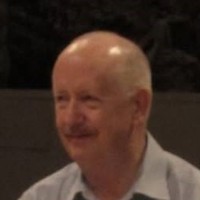



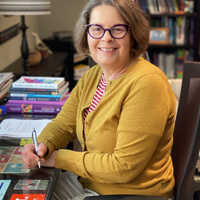

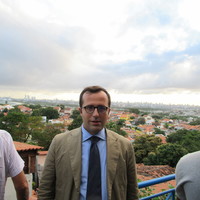
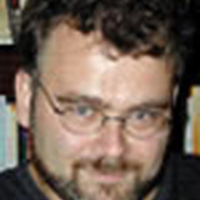

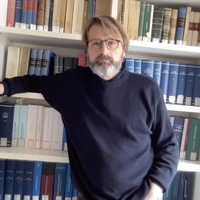
Uploads
Papers by A. Kayum Ahmed
Résumé: Lorsque le mouvement #RhodesMustFall (#RMF) a éclaté à l'Université du Cap (UCT) en mars 2015, il a non seulement déclenché la prolifération de mouve-ments étudiants à travers l'Afrique du Sud, mais également conduit à la formation du #RMF à l'Université d'Oxford, ainsi qu'à d'autres mouvements universitaires similaires aux États-Unis. En s'appuyant sur 98 entretiens avec divers acteurs engagés dans ces deux mouvements (UCT et Oxford), cette recherche empirique menée par Ahmed contribue à une littérature académique jusqu'à présent limi-tée sur les liens entre les mouvements #RMF au Cap et à Oxford. L'exemple du mouvement #RMF au Cap a inspiré le mouvement #RMF Oxford pour contester l'architecture épistémique de l'Université d'Oxford.
As a result, Part I of this article offers a brief overview of the principle of sovereignty rooted in the traditional legal definition of sovereignty in international law. In addition, it sets out an expanded interdisciplinary definition of sovereignty that more adequately reflects the relationship between sovereignty, power, and violence. In Part II of this article, Trump’s 21 invocations of the principle of sovereignty are typologized into four categories, namely, (i) the state as sovereign, (ii) the people as sovereign, (iii) the rogue as sovereign, and (iv) the revolution as sovereign. Adopting a broader definition of sovereign power, which recognizes sovereignty as a “tentative and always emergent form of authority grounded in violence,” Trump’s invocation of sovereignty during his UN speech exposes a more complex construction of sovereignty.
followed by social studies books, with history having the lowest proportion of mentions. In our qualitative content analysis of our sample of 16 textbooks, we find that the books generally focus on human rights discourse within a global and national context, using various pedagogical frameworks. As one of the most progressive constitutional democracies in the world, South Africa offers important lessons for transitional countries
grappling with HRE and curriculum reform in the context of historical injustices.
Résumé: Lorsque le mouvement #RhodesMustFall (#RMF) a éclaté à l'Université du Cap (UCT) en mars 2015, il a non seulement déclenché la prolifération de mouve-ments étudiants à travers l'Afrique du Sud, mais également conduit à la formation du #RMF à l'Université d'Oxford, ainsi qu'à d'autres mouvements universitaires similaires aux États-Unis. En s'appuyant sur 98 entretiens avec divers acteurs engagés dans ces deux mouvements (UCT et Oxford), cette recherche empirique menée par Ahmed contribue à une littérature académique jusqu'à présent limi-tée sur les liens entre les mouvements #RMF au Cap et à Oxford. L'exemple du mouvement #RMF au Cap a inspiré le mouvement #RMF Oxford pour contester l'architecture épistémique de l'Université d'Oxford.
As a result, Part I of this article offers a brief overview of the principle of sovereignty rooted in the traditional legal definition of sovereignty in international law. In addition, it sets out an expanded interdisciplinary definition of sovereignty that more adequately reflects the relationship between sovereignty, power, and violence. In Part II of this article, Trump’s 21 invocations of the principle of sovereignty are typologized into four categories, namely, (i) the state as sovereign, (ii) the people as sovereign, (iii) the rogue as sovereign, and (iv) the revolution as sovereign. Adopting a broader definition of sovereign power, which recognizes sovereignty as a “tentative and always emergent form of authority grounded in violence,” Trump’s invocation of sovereignty during his UN speech exposes a more complex construction of sovereignty.
followed by social studies books, with history having the lowest proportion of mentions. In our qualitative content analysis of our sample of 16 textbooks, we find that the books generally focus on human rights discourse within a global and national context, using various pedagogical frameworks. As one of the most progressive constitutional democracies in the world, South Africa offers important lessons for transitional countries
grappling with HRE and curriculum reform in the context of historical injustices.